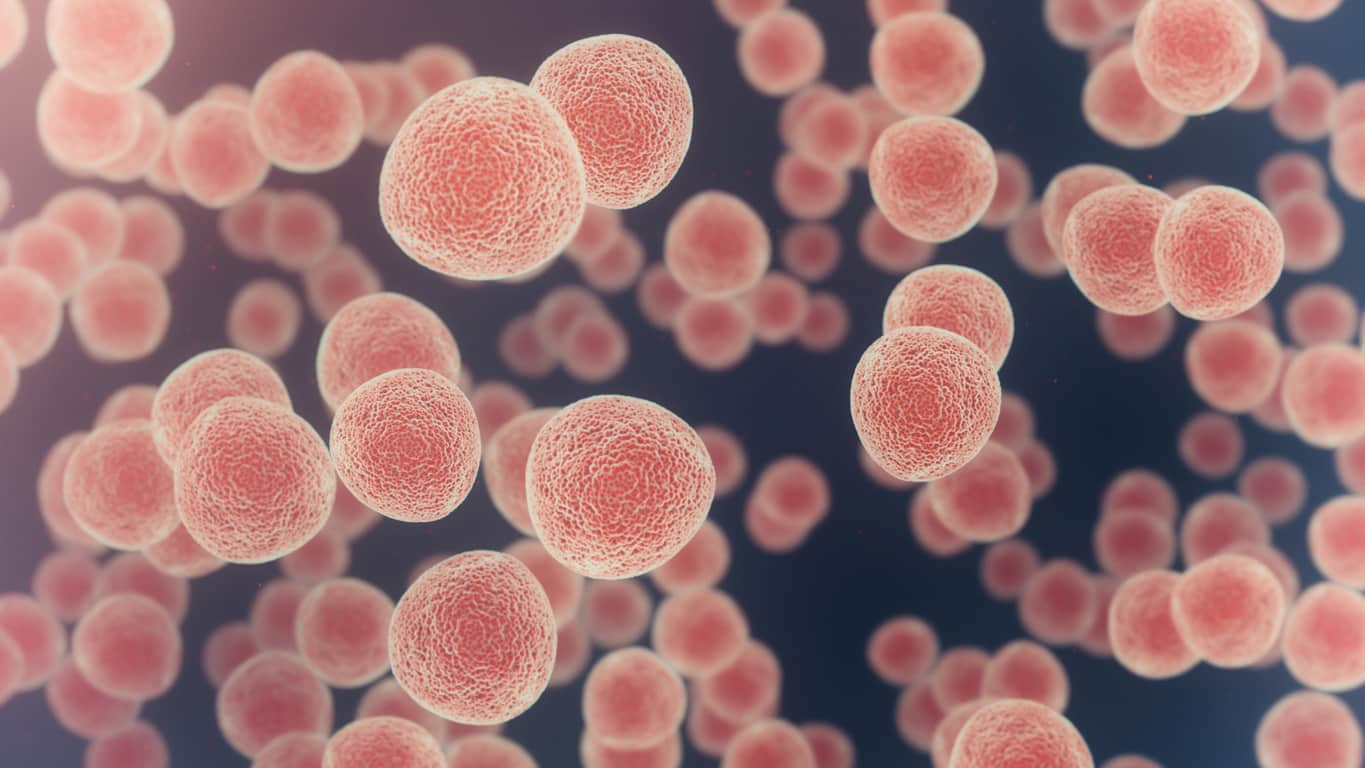Can Alcohol Cause Cancer?
By John Gillen - Last Updated: July 9, 2024 | All Sources
Clinically Reviewed on March 28, 2024 by Dr Robert Lutaaya.


It is well-known that alcohol can have a number of serious effects on both physical and mental health. Alcohol misuse, in fact, is the biggest risk factor for death, ill health and disability among 15-49-year-olds in the UK, and the fifth biggest risk factor across all ages. Alcohol is also known to be a causal factor in more than 60 medical conditions, including high blood pressure, cirrhosis of the liver and depression.
But can alcohol cause cancer? Here we’ll take a look at some of the evidence – read more.
The Science Behind Alcohol and Cancer
There have been many studies that show a link between alcohol consumption and various types of cancer. Most of these have shown a correlation – in other words, statistics show that people who drink more alcohol are more likely to experience certain types of cancer. A recent large-scale genetic study led by researchers from Oxford also confirmed that alcohol is a direct cause of cancer using DNA evidence.
So how does alcohol cause cancer? According to Cancer Research UK, there are three main ways:
Damage to cells in the body
When you drink alcohol, your body breaks it down into a chemical called acetaldehyde. This chemical can damage your cells and damage the DNA that is responsible for repairing any cell damage. When DNA is damaged, a cell can begin growing out of control and start to turn into a cancerous tumour.
Damage to cells in the mouth and throat
Drinking alcohol can also make cells in the mouth and throat more susceptible to absorbing harmful chemicals that can cause damage to the cells.
Hormonal changes
Hormones are signalling molecules, commonly known as the ‘chemical messengers’ of the body. Alcohol consumption can increase the levels of certain hormones, including oestrogen and insulin, which can make cells divide more often. This in turn can increase the risk of cancer developing.
Common Types of Cancer Linked to Alcohol Consumption
There are several alcohol-related cancers known to exist.
These include:
- Mouth and throat cancer
- Voice box (larynx) cancer
- Oesophagus cancer – the tube that connects your mouth to your stomach
- Colon and rectum cancer
- Liver cancer
- Breast cancer
Alcohol increases the risks of some of these types of cancer more than others. Breast cancer, for example, is the most common cancer in women, accounting for almost a third (30%) of all female cancer cases. Women who have an average of three alcoholic drinks per week have a 15% higher risk of breast cancer compared to women who don’t drink at all. Experts estimate that the risk of breast cancer goes up another 10% for each additional drink women regularly have each day.
Bowel (colon and rectal) cancer is also relatively common and it is estimated that around 6 out of every 100 bowel cancers (6%) in the UK are linked to alcohol. A type of oesophagus cancer known as oesophageal squamous cell carcinoma has risks that range from 1.3 times higher for light drinking to nearly 5-fold higher for heavy drinking. As well as being associated with alcohol-related liver disease (ARLD), heavy drinking can also double the risk of liver cancer.
According to the US National Cancer Institute, various studies have found either no association or inconsistent evidence that alcohol causes cancers of the ovary, prostate, stomach, uterus, and bladder. There is some evidence, however, linking alcohol with increased risks of melanoma (skin cancer), and prostate and pancreatic cancers.
Risk Factors and Alcohol Consumption
When it comes to alcohol and cancer risk, the risk will generally increase the more you drink on a regular basis. There are also many other risk factors for cancer, including smoking, poor diet, excess weight and a lack of physical exercise.
It is worth noting that drinking alcohol – particularly heavy, long-term alcohol consumption and alcohol addiction – is also often associated with an unhealthy lifestyle in general. There are links between heavy drinking and smoking, for example, and the amount of tobacco that smokers consume tends to increase as they drink.
Chronic alcohol consumption can also be linked to poor diet and weight gain and may affect the amount of exercise taken. All of these factors can also increase the risk of cancer.
Reducing Cancer Risk: Guidelines on Alcohol Consumption
There is no level of alcohol consumption that is known to be completely risk-free, which is why the official guidance from the Chief Medical Officers of the UK is for lower-risk (but not safe) drinking.
The guidelines state that:
- You are safest not to drink regularly more than 14 units per week, to keep health risks from drinking alcohol to a low level.
- If you do drink as much as 14 units per week, it is best to spread this evenly over 3 days or more.
These safer drinking guidelines are not only for cancer risks but also to reduce the risks of the many types of physical and psychological damage that alcohol can cause.
Support and Resources for Reducing Alcohol Intake
If you are worried about your drinking, you might be wondering how to cut down or stop. For most people there are simple steps you can take, like keeping a drinking diary (you might be surprised at how much you are actually getting through), setting drink-free days or weeks and setting limits on how much you will drink during any particular day or session.
If you have developed an alcohol dependency or addiction, even cutting down your drinking can be very challenging. Expert help might be needed in this case. Mutual support groups like Alcoholics Anonymous can be very valuable for some people, as can local drug and alcohol services.
The most effective way of treating a serious drinking problem or alcohol addiction is a stay in residential alcohol rehab, as this will address both the detoxification period and the psychological aspects of your drinking. Get in touch today if this is something you think you need help with.
There are plenty of good reasons to control your drinking – with an increased risk of cancer being one of the most serious.
John Gillen
- Author
- Last updated: July 9, 2024
John is one UK’s leading professionals in the addiction recovery industry. Pioneering new treatment techniques such as NAD+ and ongoing research into new therapy techniques such as systematic laser therapy, John is committed to providing the very best treatment for people throughout the UK and Europe. During his extremely busy schedule, John likes to regularly update our blog section with the latest news and trends in the industry to keep visitors to our site as well informed as possible on everything related to addiction treatment.
Dr Robert Lutaaya
- Clinical Reviewer
- Last reviewed: March 28, 2024
MBChB, MSc Psych
Dr Robert Lutaaya qualified in 1995 from Worclaw Medical University as MBChB, and obtained a MSc Psych from the University of Manchester in 2014. Dr Lutaaya has previously worked for the CGL Substance Misuse Service and as an on-call doctor substance misuse Doctor for 17 years before joining Ocean Recovery. Dr Robert Lutaaya is committed to helping those struggling with alcohol and drug addictions.
Source Links
- https://www.gov.uk/government/publications/the-public-health-burden-of-alcohol-evidence-review
- https://www.ndph.ox.ac.uk/news/new-genetic-study-confirms-that-alcohol-is-a-direct-cause-of-cancer
- https://blogs.cdc.gov/cancer/2018/04/02/3-weird-things-about-acetaldehyde/
- https://www.cdc.gov/cancer/alcohol/index.htm
- https://www.breastcancer.org/risk/risk-factors/drinking-alcohol
- https://www.bowelcanceruk.org.uk/about-bowel-cancer/risk-factors/reducing-your-risk/alcohol-and-smoking
- https://www.cancer.gov/about-cancer/causes-prevention/risk/alcohol/alcohol-fact-sheet#what-is-the-evidence-that-alcohol-drinking-can-cause-cancer
- https://www.who.int/news-room/fact-sheets/detail/cancer
- https://www.ncbi.nlm.nih.gov/pmc/articles/PMC6876501
- https://assets.publishing.service.gov.uk/media/5a7f51b4e5274a2e87db5206/summary.pdf
Request A Callback
Enter your phone number and a member of our team will call you back to discuss your recovery.
Contact Us
For more information please get in touch using the information below
Call: 01253 847 553 Send us a messageDownload Our Brochure
For more information about the addiction services that Ocean Recovery offer, download our brochure.
Download our brochureDo I need help?
A lot of people are unsure if there are suffering from addiction. Take these tests to find out if its effecting you without your knowledge.
Select your test and find out more
Our Centre
Rehab In Northern England

Google Reviews
4
Tel: 01923 369161
Email: info@oceanrecoverycentre.com
Address: 94 Queen's Promenade, Blackpool, FY2 9NS
View CentreOur Partnering Centres
Rehab in Scotland

Google Reviews
5
Tel: 01475 303998
Email: info@novarecovery.com
Address: 10-12 Scott St, Largs, North Ayrshire, KA30 9NU
View CentreRehab in Greater London

Google Reviews
4.5
Tel: 01923 369 161
Email: info@cassioburycourt.com
Address: Cassiobury Court, Richmond Drive, Watford, Herts, WD17 3BH
View CentreRehab in the Midlands

Google Reviews
4.5
Tel: 01908 489 421
Email: info@asanalodge.com
Address: 48 Moorend Rd, Yardley Gobion, Towcester, NN12 7UF
View Centre
